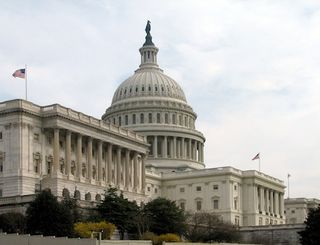NCTA, ACA Join Senate Letter on Broadband CPNI

RELATED:Advertisers Warn Hill on FCC Broadband CPNI Item | Group Seeks FCC Answer on Missing Broadband Privacy Comments
The heads of the major ISP/cable/telco trade associations have told Congress the FCC needs to back off new opt-in-centric rules on broadband CPNI (customer proprietary network information), and instead adopt an FTC-like approach to privacy.
That came in a letter to the leaders of the Senate Judiciary Committee, which is holding a hearing May 11 on the new FCC privacy framework, from the heads of the American Cable Association, National Cable & Telecommunications Association, CTIA, USTelecom and the Internet Commerce Coalition.
It was a busy day in the letter-writing department as advertising trade groups registered similar concerns to the senators.
The FTC does not have privacy rules, but instead enforced broadband privacy through enforcement actions--filing court suits or settling complaints--using its authority to go after false or deceptive advertising if companies strayed from promises made in privacy policies.
But the FTC's authority to regulate broadband privacy went away when the FCC reclassified Internet access as a Title II service beyond the reach of the FTC.
The associations advised Congress that there was nothing in the Title II reclassification that warrants departure from that FTC approach based on effective notice by ISPs to consumers and meaningful choice over their data--but not a mandatory opt-in regime.
Multichannel Newsletter
The smarter way to stay on top of the multichannel video marketplace. Sign up below.
They are not happy with the FCC proposal to make opt-in the default for sharing most consumer information with third parties for targeted marketing purposes, meaning they would have to affirmatively agree to it.
"This would lead to absurd results, such as restricting an ISP’s ability to market accessories that work with a consumer’s device," they told the senators. "It also would make it difficult for consumers to have access to discounted offers from their providers. This broad opt-in requirement, irrespective of the sensitivity of data, would be inconsistent with common Internet practice and would harm consumer welfare. More important, it would be confusing to require consumers to opt-in to ISP data use and sharing because consumers would likely not understand how the opt-in regime would apply."
The groups were the same ones who advised the FCC to use the FTC approach before FCC Chairman Wheeler unveiled his opt-in approach to sharing data with third-party marketers.
They said they support a "Reasonable framework," but said Congress might need to help the FCC "realign" its proposal with the FTC approach to make it so.
Contributing editor John Eggerton has been an editor and/or writer on media regulation, legislation and policy for over four decades, including covering the FCC, FTC, Congress, the major media trade associations, and the federal courts. In addition to Multichannel News and Broadcasting + Cable, his work has appeared in Radio World, TV Technology, TV Fax, This Week in Consumer Electronics, Variety and the Encyclopedia Britannica.

